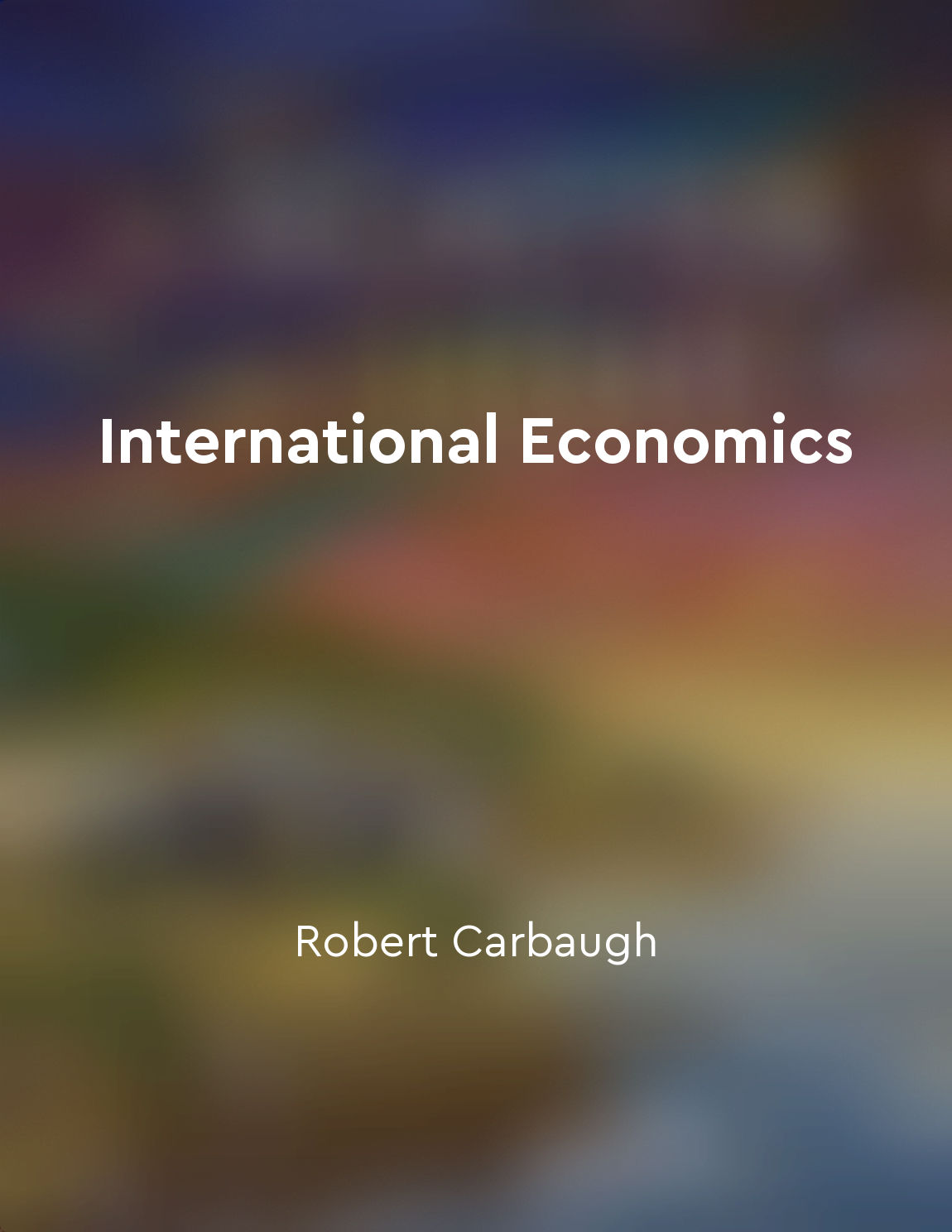Comparative advantage is key to understanding trade from "summary" of Basic Economics by Thomas Sowell
The idea of comparative advantage is crucial in grasping the complexities of trade. It is not just about who can produce a certain product more efficiently, but rather about who can produce a product with the least opportunity cost. This means that even if a country can produce all goods more efficiently than another country, it can still benefit from trading with that country if it has a comparative advantage in producing certain goods. The concept of comparative advantage allows countries to specialize in producing the goods and services in which they are most efficient. This specialization leads to increased productivity and overall economic growth. By focusing on what they do best and trading for other goods and services, countries can maximize their output and welfare. It is important to understand that comparative advantage is not about absolute advantage. A country may have an absolute advantage in producing all goods, but it can still benefit from trade if it has a comparative advantage in producing some goods. This is because trade allows countries to benefit from the differences in relative production costs. In essence, comparative advantage is about mutual gain from trade. It is not a zero-sum game where one country's gain is another country's loss. Both parties can benefit from trade by specializing in what they do best and exchanging goods and services. This leads to a more efficient allocation of resources and higher living standards for all involved.- The concept of comparative advantage is fundamental to understanding the benefits of trade. It allows countries to specialize in what they do best, leading to increased productivity and overall economic growth. By focusing on their comparative advantages and engaging in trade, countries can mutually benefit and improve their welfare.
Similar Posts
Do your research before investing
When it comes to investing, ignorance is not bliss. Lack of knowledge about a company can lead to disastrous consequences. Befo...

Exchange rates play a crucial role in international trade
Exchange rates are a fundamental aspect of international trade. They determine the value of one country's currency in terms of ...

Monopoly power can harm consumers
Monopoly power can harm consumers when a firm is able to raise prices above the competitive level because it faces no effective...
Unemployment can be caused by various factors and can have harmful effects on the economy
Unemployment is not solely the result of people being lazy or unwilling to work. There are various factors that can contribute ...
Economic inequality is a threat to democracy
Economic inequality is not just about how much money people have in their bank accounts; it is also about power. In a society w...

Communication revolution
The communication revolution is a term that captures the profound changes in the way people communicate and connect with one an...
Output gap indicates economic health
The output gap is a crucial concept in understanding the state of an economy. It represents the difference between the actual l...
Geography influences the distribution of resources
The distribution of resources across different regions of the world is not random; rather, it is heavily influenced by the geog...
Free trade agreements promote economic cooperation between nations
Free trade agreements play a crucial role in fostering economic cooperation between nations. These agreements are designed to e...
Development should be driven by local needs, not foreign agendas
Development can only be truly successful when it is rooted in the needs and priorities of the local population. Foreign agendas...

